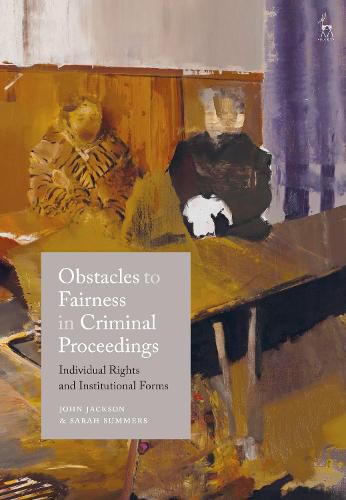Readings Newsletter
Become a Readings Member to make your shopping experience even easier.
Sign in or sign up for free!
You’re not far away from qualifying for FREE standard shipping within Australia
You’ve qualified for FREE standard shipping within Australia
The cart is loading…






This volume considers the way in which the focus on individual rights may constitute an obstacle to ensuring fairness in criminal proceedings.
The increasingly cosmopolitan nature of criminal justice, forcing legal systems with different institutional forms and practices to interact with each other as they attempt to combat crime beyond national borders, has accentuated the need for systems to seek legitimacy beyond their domestic traditions. Fairness, expressed in terms of the right to a fair trial in provisions such as Article 6 of the European Convention on Human Rights, has emerged across Europe as the principal means of guaranteeing the legitimacy of criminal proceedings. The consequence of this is that criminal procedure doctrines are framed overwhelmingly in ‘constitutional’ terms - the protection of defence rights is necessary to restrict and legitimate the state’s mandate to prosecute crime. Yet there are various problems with relying solely or predominantly on defence rights as a means of ensuring that proceedings are ‘fair’ or legitimate and these issues are rarely discussed in the academic literature. In this volume, scholars from the disciplines of law, philosophy and sociology challenge various normative assumptions underpinning our understanding of fairness in criminal proceedings.
$9.00 standard shipping within Australia
FREE standard shipping within Australia for orders over $100.00
Express & International shipping calculated at checkout
This volume considers the way in which the focus on individual rights may constitute an obstacle to ensuring fairness in criminal proceedings.
The increasingly cosmopolitan nature of criminal justice, forcing legal systems with different institutional forms and practices to interact with each other as they attempt to combat crime beyond national borders, has accentuated the need for systems to seek legitimacy beyond their domestic traditions. Fairness, expressed in terms of the right to a fair trial in provisions such as Article 6 of the European Convention on Human Rights, has emerged across Europe as the principal means of guaranteeing the legitimacy of criminal proceedings. The consequence of this is that criminal procedure doctrines are framed overwhelmingly in ‘constitutional’ terms - the protection of defence rights is necessary to restrict and legitimate the state’s mandate to prosecute crime. Yet there are various problems with relying solely or predominantly on defence rights as a means of ensuring that proceedings are ‘fair’ or legitimate and these issues are rarely discussed in the academic literature. In this volume, scholars from the disciplines of law, philosophy and sociology challenge various normative assumptions underpinning our understanding of fairness in criminal proceedings.